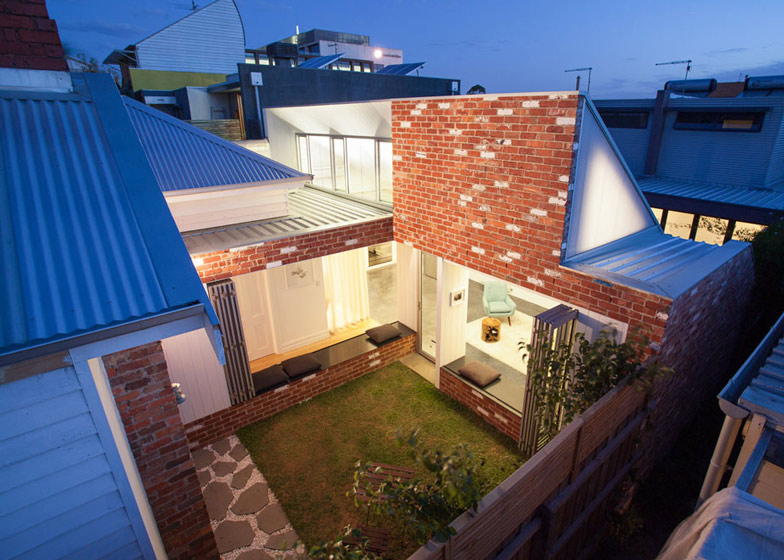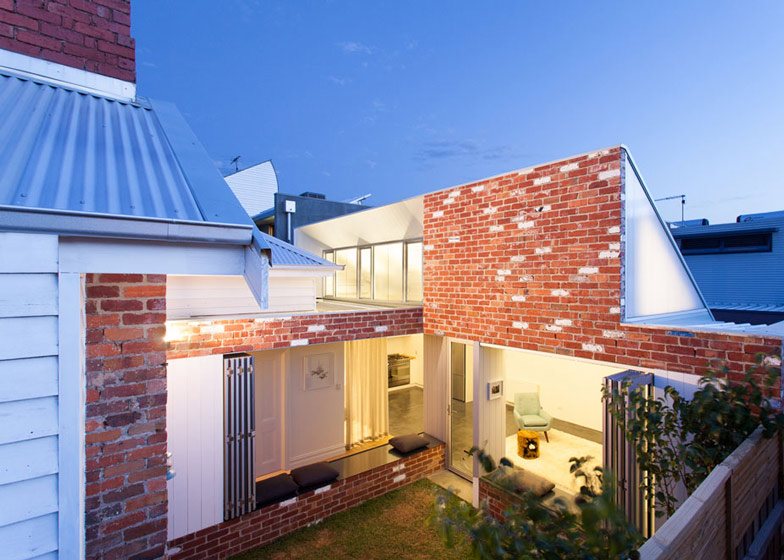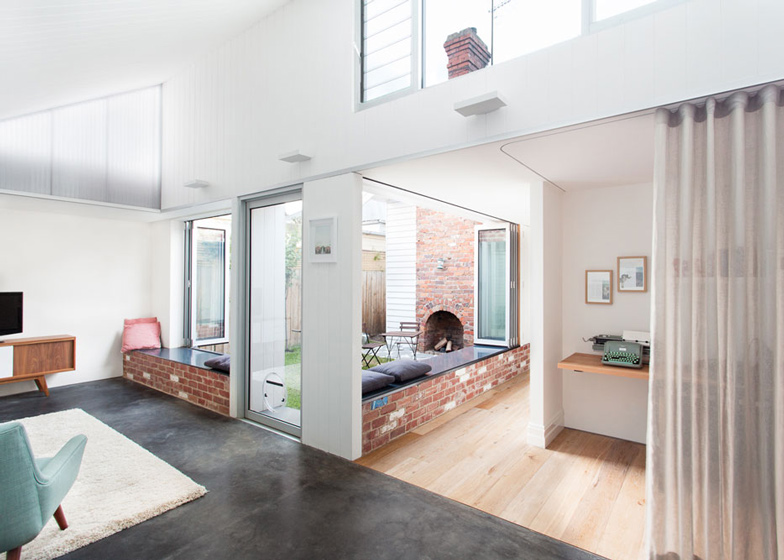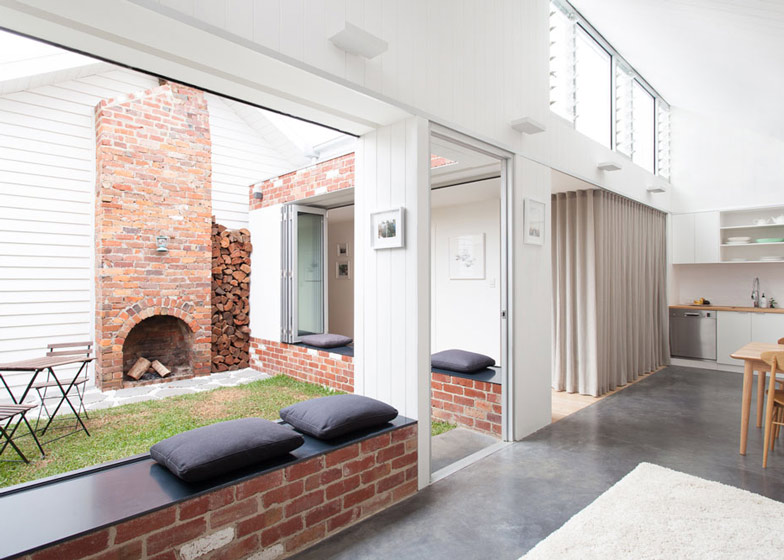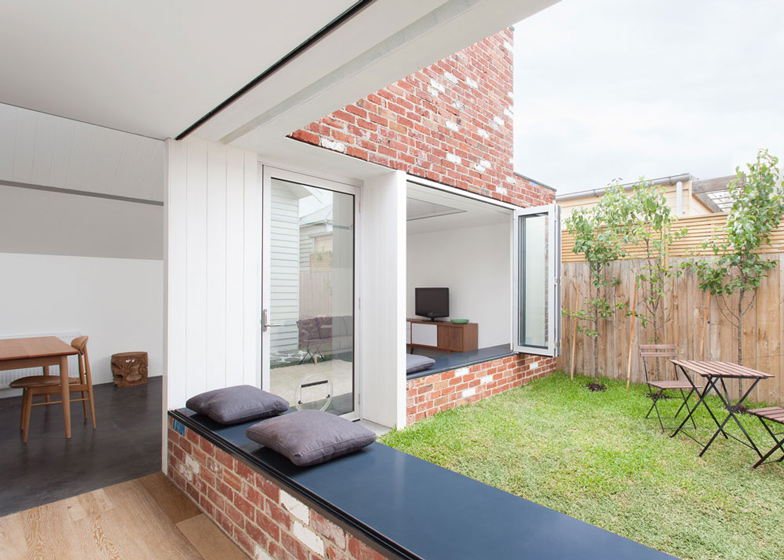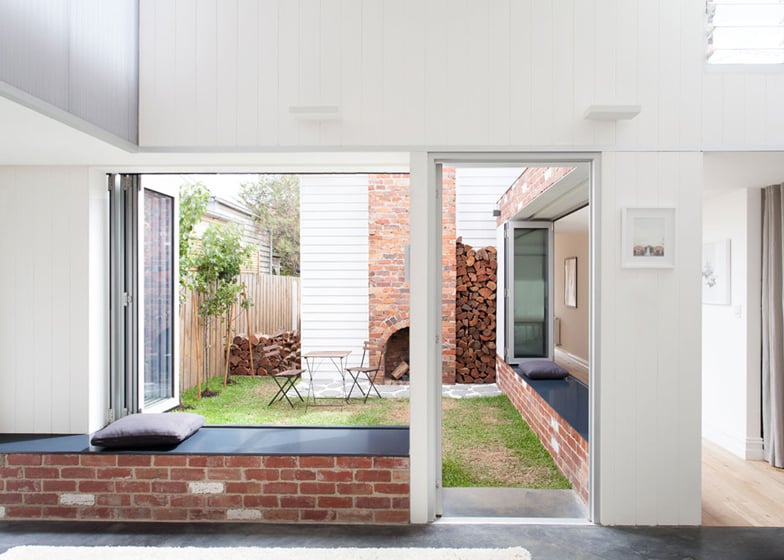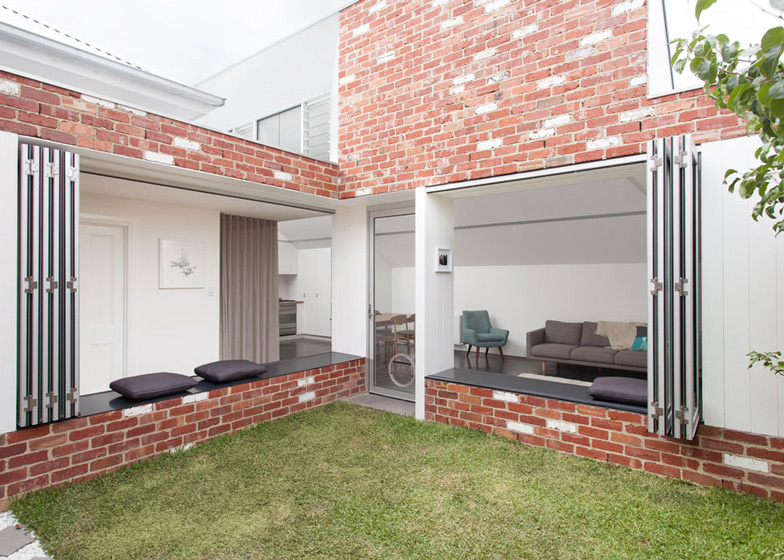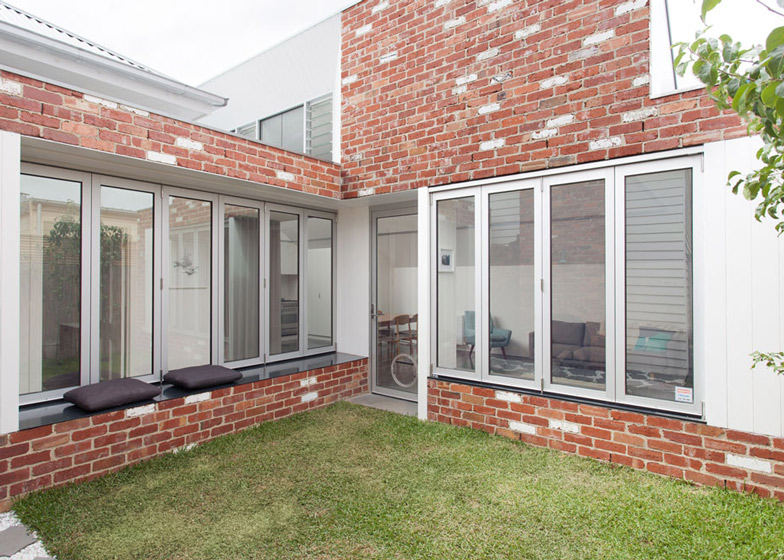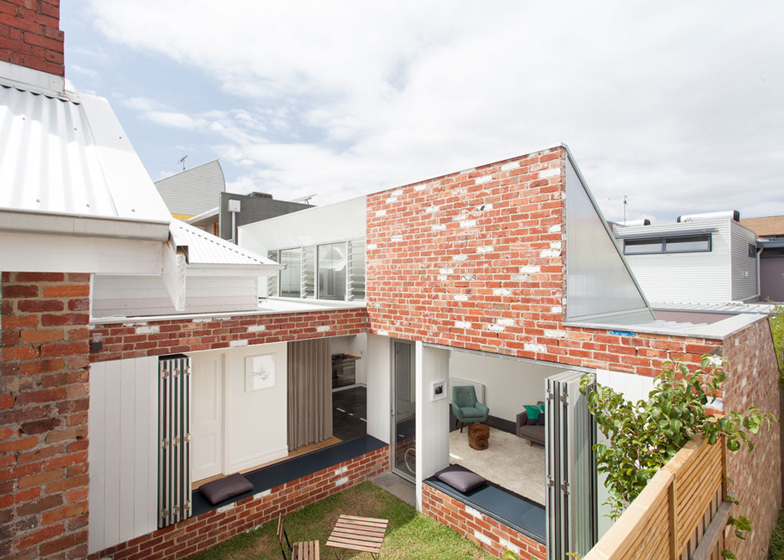Melbourne practice Architecture Architecture has altered the orientation of a house in the Australian city so the main living areas get the best of the northern sunlight (+ slideshow).
The young couple who own the house initially intended to extend it along one boundary only, but Architecture Architecture convinced them to utilise the space at the rear of the plot by removing an existing bathroom to make room for a north-facing courtyard.
The additions surrounding the courtyard increase the interior dimensions of the Victorian house and provide a new bathroom and small study, as well as an open-plan kitchen and living area with folding windows that can be opened to connect it to the courtyard.
"Constructing along this rear boundary maximised the solar orientation, blocked the neighbouring townhouses from sight and provided a private internal courtyard that could be enjoyed from many vantage points within the house," architect Nick James told Dezeen.
Architecture Architecture added a steeply pitched roof that bypassed planning restrictions and allowed them to introduce high ceilings and louvred clerestory windows to increase light and space inside the new rooms.
As the clients like to entertain regularly, the architects designed the living and kitchen space as a social area with benches in the windows providing seats where guests can sit facing inside or outside.
"The outdoor courtyard has the feel of a room, with bench seats on two sides and a fireplace that allows for outdoor entertaining on cooler evenings," said James.
The fireplace was revealed during the demolition of the bathroom and the original brick was uncovered by stripping back a layer of plaster which had been concealing it.
Brick is also used to clad walls surrounding the courtyard, and the architects said they chose recycled bricks to add character and to reference the industrial history of Melbourne's Abbotsford district.
"The exciting thing about these bricks is that every palette you receive is different, so no two walls you construct will appear the same," explained James. "They vary slightly in colour, size and imperfections, so there’s a real character and history within each one and bringing them together creates an extremely interesting patchwork."
White timber boards contrast with the red textured surface of the brick, with both materials recurring inside the house to enhance the connection between indoor and outdoor spaces.
A concrete slab floor used in the living areas was specified for its thermal efficiency as it absorbs and releases heat, helping to maintain consistent temperatures in summer and winter.
Photography is by Tom Ross.
Here's some more information from Architecture Architecture:
THE 'TURNAROUND HOUSE' TURNS TO FACE THE SUN
This project is an extension to a Victorian‐era house in Abbotsford, Melbourne. The brief called for new open‐plan living areas, a new kitchen, bathroom and study nook. Against the odds, this modest extension has turned a dark, cramped residence with little backyard to spare, into a light‐filled house with fantastic indoor and outdoor entertaining areas.
The existing house was south‐facing, casting itself into shadow, with unsightly neighbouring buildings imposing on all sides. By creating a U‐shaped extension along the property boundaries, Architecture Architecture has turned everything around. Now the house enjoys a generous private courtyard, with great northern sunlight throughout the year.
From the outside, the steep, raked roof deftly negotiates planning regulations, allowing for generous ceilings and high‐level clerestory louvres. In stark contrast with these windows, an unapologetic blank brick wall hovers over the courtyard, boldly declaring a distinction between the two sides of the living areas within. One side, more intimate, opens up to the courtyard, the other, with views to the passing clouds, admits northern sunlight in the wintertime.
Along both sides of the courtyard, a pair of long bench seats soften the threshold between indoors and out. One serves the living areas, the other serves the courtyard. At the back of each bench, bi‐fold windows draw back, allowing the house to throw itself open to the outdoors or to close‐off – adapting as required.
The material palette further assists in relaxing the otherwise clear geometries of this house. Exposed recycled brick (an echo of Abbotsford's industrial heritage) and white timber boards (a staple of the modest residential extension), subtly breach the delineation of indoors and outdoors, weaving the two together.
The optimised solar orientation along with the use of brick walls and a dark concrete slab for thermal mass ensure that this is a high‐comfort, low‐energy house all year round, ideal for entertaining. A true turnaround.

